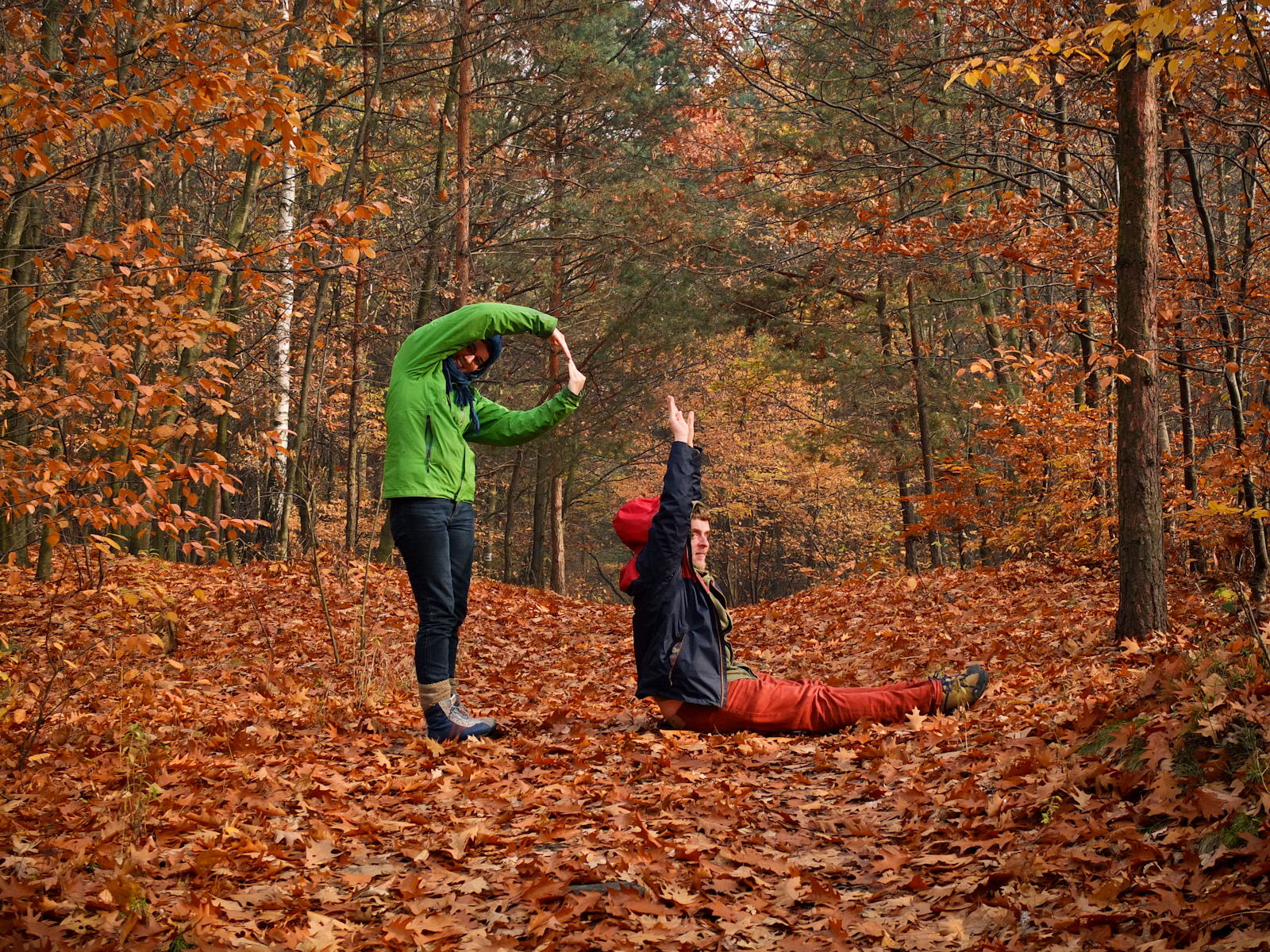
5 WAYS TO BE A CONSCIOUS TRAVELLER
Cheap airfares are making overseas travel a possibility for more people than ever before. This is really exciting, as travel is the best education we can give ourselves to become informed global citizens. But on the other hand, no one ever really teaches us how we should travel….
We brushed up against many different forms of tourism on our overland journey half-way round the world, and it seems to us there is plenty of room for more conversations around conscious travel. In fact, if it was up to us it would be a compulsory school subject ;). Travelling “right” is really a double-sided coin that comes down to:
- Ensuring proper respect to the people of the places we visit
- Ensuring travellers get the most out of their trips abroad.
This article is Drop The Tension‘s first in our series of useful information to help backpacker-local interactions be positive experiences for both sides. Take this as a guide for anyone heading overseas. But it might be especially useful for a young person heading off backpacking for the first time (Know someone? Share this their way!), especially if you’re travelling solo (we think you’re awesome :))
We’re not into rules and remind you that this is just a guide of things to keep in mind. Common sense is the first thing you should pack for the trip and it’ll help you determine what is appropriate for your given situation. Any questions or comments, please contact us below – we’d love to start a discussion around this topic!
So, WHAT IS CONSCIOUS TRAVEL?
Conscious travel is about being aware of the impact your being there has on a place. A conscious traveller should strive to keep their travel low-impact. In this, I mean that we don’t want the places we visit to change dramatically through our visit. It’s that old rule ‘leave things as you found them… or a little bit better.’
Your impact includes everything from:
- The cultural impact: in some destinations, you’ll find yourself getting a lot of attention as a foreigner. The world round, people are listening to western music and watching Hollywood films. Seeing you can sometimes be the movies ‘coming to life’. People will be watching how you behave and might even copy what you do. While in the ‘spotlight’, don’t behave in a way you wouldn’t want to be copied… Don’t make yourself (or your country) famous for something you wouldn’t want it to be famous for!
- Your environmental impact: many places in the world lack environmental education. If locals are paying attention to your behaviour, disposing of rubbish (which, by the way, was introduced to the rest of the world by ‘The West’, without even a hint as to what to do with it!) correctly or refilling plastic water bottles where possible can start showing people other ways of doing things that care for the surroundings.
- The impact of where and how you spend your money.
5 WAYS TO BE A CONSCIOUS TRAVELLER:
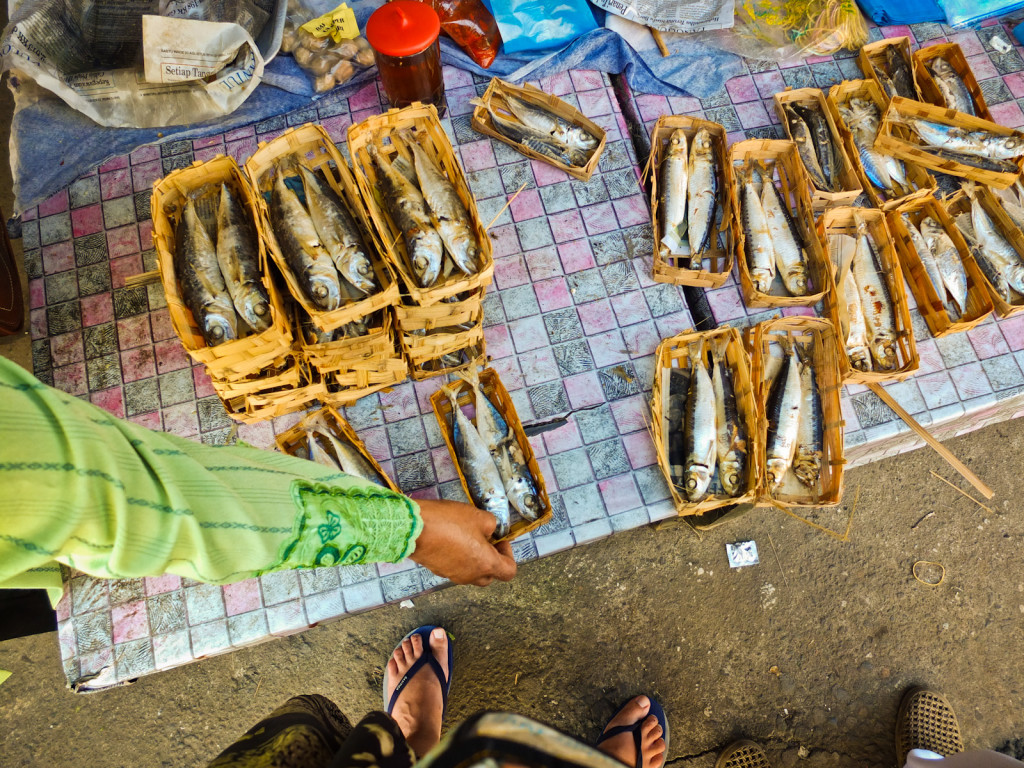
Underpaying is never fair. But overpaying also doesn’t help anyone. It’s about finding the right price.
1. Pay the right price
“I don’t mind if they charge me extra. It’s so cheap here! It’s only like $5 back home anyway. Besides, I’m helping them feed their kids.”
It’s time to bust the myth that if you get overcharged or occasionally ripped off when travelling overseas that you are helping the community* – FALSE.
*Skip to way 4 below for how you CAN help the community 🙂
Yes, your money does help when it reaches the right hands and when it allows sustainable growth. Otherwise you might easily fall into promoting cheating, corruption or creating harmful dependencies. When travelling, you need to start thinking in the local currency (however crazy cheap it might seem compared to home). Put yourself into the context of the country you are in.
ASK YOURSELF: How much does that money mean here?
In Indonesia, we found out the monthly salary of a teacher is AUD$50, enough to live fairly comfortable lives, just as an Australian teacher can on their monthly wage. So when a tourist flies into Bali and doesn’t negotiate the price with the taxi driver and pays $30 for taxi, it is like paying $3,000 for a taxi in Australia – imagine if wealthy visitors from far away started giving cab drivers in a small town in Australia (or your home country) $3,000 for a lift or $300 for a sandwich!?! What would the drivers spend that money on?! Would you still be able to afford a cab?? How would it impact the local society? How would it impact the honest people there and how would the dishonest ones start to behave? And what would then happen if the influx of tourists suddenly stopped?
I want to underlie that it is never okay to save money at the expense of locals. It is not helpful and certainly not fair to underpay. But it is equally not helpful to give a fortune to random people. Be conscious and responsible – it’s all about finding the right price.
In one tourist town on Flores we heard that teenagers had stopped going to school and weren’t interested in helping their families out in the rice fields because they could instead ride around on their motorbikes waiting till they find a tourist willing to hand over more money than their parents might see in 2 weeks for one lift up the volcano… How helpful to the community does that sound?
When we travel, our money has the power to totally transform a place. This can be in both negative and positive ways (for positives, skip to way 4 below). In overpaying, you are in fact teaching people the better they are at cheating the more they will earn… The only people you’re supporting in getting ripped-off is rip-off merchants.
We meet a young backpacker who had been volunteering in an eco-lodge on Flores. He told us he had been robbed by someone sneaking into his room while he was sleeping. “They didn’t touch my phone or tablet. Only cash. But, whatever, it was only like 50 euros.” he told us, “I just went to the ATM and took out more. I didn’t even bother to tell the lodge about it.” Clearly he didn’t stop to think that he had just let someone walk away with more than a month’s local salary, without even mentioning it to the place he was volunteering at! The fact that the money means more to locals than it does to you is the very reason you should care when you’ve been robbed or cheated – tourism corrupts!
“This is unbelievable! You foreigners have more money in your wallets than we ever see, and when you run out of it you just go to an ATM and get more!” – tyre repair shop owner, Labuan Bajo, Indonesia.
When tourists start coming to a place and overpaying, 2 myths appear that create a very unhealthy backpacker-local relationship:
- All tourists are dumb.
- All tourists are rich.
Number 1 is obviously not a good first assumption to start any relationship for genuine sharing of culture – both sides lose when people think like this! But number 2 might also come as a shock to some readers: not all tourists are rich. And I’m not just talking about long-term, tight-budget nomads. It was a big surprise for a naive Aussie like myself, to hear my friends from Eastern Europe tell me that ‘prices back home are pretty similar to the prices here in Bali’. And by the way, the destinations we like to visit are often also favourite holiday spots for locals and people from neighbouring countries too! When we are happy to overpay, it’s only a matter of time before the prices rise so others can’t visit. Why should we be the only ones to enjoy the beautiful spots purely because our currency is stronger?
So, do your research when you arrive (or better, start it online before you go). Ask other travellers what they pay. Or better yet, ask a local what do they pay – chances are that’s the ‘sustainable’, low-impact price.
Find out what’s a fair price and don’t pay more than that (unless you want to give a tip for good service). Spread the word to your fellow travellers and you’ll really be helping communities all over the world!
2. Care about what you wear
I’m not trying to be a prude here. At home, I’m all about you expressing yourself through fashion – push the boundaries! But when you’re packing your bag for overseas, you should try to imagine yourself in the country you’re travelling to. Is it possible it might be a more conservative place than your home?
Yep, appropriate attire is key to being low-impact in your journey. And it doesn’t depend on the local religion – I was dressing the same in Catholic East Timor, Hindu Bali, Islamic Malaysia and Buddhist Laos. Wearing the wrong clothing might offend, propagate misconceptions about westerners sexuality or simply disgust locals. All of the above can bring up potentially dangerous cultural misunderstandings.
As one wise young woman told me when I arrived in East Timor, “People will already be staring at you because of your skin colour, at least give them less of it to stare at.”
This is a pretty easy one: USE YOUR EYES. The locals should be your guide. What are other people wearing on the beach? If you don’t see other bikinis, wear your t-shirt in the water. Being culturally respectful is surely more important to you than your tan?
Fashion truths for travellers:
- Long pants (something that goes below the knee) don’t make you hotter. Why do you think desert-dwelling Arabs invented the kaftan? Find something with flowing, wide-legs and you’ll find yourself comfortable in more than just the cultural setting.
- A long-sleeved shirt is always handy to carry: light-weight, removable, sun-protection, unexpected-air-con-protection, always-ready-for-the-temple and beach-towel in one!
- Scarves are great if you’re worried about your neckline. And they double as your blanket in the tropics or winter scarf in the freezing air-conditioned bus – be prepared for that one!
I’m not saying you need to wear a hijab (unless your destination is Iran – amazing choice btw – where it’s the law), but stories of girls jogging through traditional Muslim villages in short-shorts and singlets in Malaysia’s Langkawi make me feel a little ill. As do stories of young men in Thailand who refused to put on their t-shirt in a restaurant when requested by the owner because they were “too hot”… Cry me a river, caveman!
3. Make local friends
“I haven’t met anyone here. I need to be around people!” I felt sorry for the backpacker who said this to us, as he fled the amazing Flores to run back to the backpacker safety-net of The Gilis. He was surrounded by people, but he didn’t even notice them!!!
How strange it is to travel to a different country, with a completely different culture to your own, only to spend time hanging out with people from other western countries… Broaden your world, broaden your friends circle!
Travel is the best educations you can get. And who better to help you dig deeper into the places you visit than the people who know it best? I’m not talking about a tourist agent – get to know the locals! When you approach a place with an open-mind, you’ll be surprised how quickly new friends will appear.
Skip the most touristy (and most expensive!) attractions and look for where the locals hang out. Take the local buses and see what conversations might start. Or better yet, hitch-hike! Chances are, your first friend probably knows someone cool in the next town on your way… And before you know it, you’ve got a contact in every town across the province!
We have so much to learn about hospitality from places outside the western world. It can be extremely humbling to experience staying in the home of a local friend and it can open up a new world to you. This is what travel is really about.
Best of all, the learning and sharing is a two-way exchange. If you’re interested in the local culture and way of life, chances are yours is also pretty fascinating for them. Sometimes you might be the first foreigner someone meets in their life, how exciting this can be for everyone!
Hospitality Networks
The modern world makes meeting locals even easier! Here are 3 online hospitality communities you should sign up to NOW, if you’re heading overseas:
- CouchSurfing Classic! Great for off-the-beaten-track places, as it’s so widespread these days… But you might have trouble with it in bigger cities or popular tourist spots, due to the high-volume demand. However, CS has sold out and gone commercial (losers!), which is why you should also join…
- BeWelcome: A great alternative to CouchSurfing. While having fewer members, you’ll find them much more truly dedicated to the idea of hospitality and intercultural exchange.
- Trustroots: New kid on the block, but super amazing standard of real travellers to connect with here. Plus, simple, easy to use interface.
- Facebook! Surprised to see it on this list? Type in the name of the place you’re visiting and chances are you’ll find some amazing groups waiting to meet you 🙂
These websites aren’t just great for helping you meet new friends while you’re on the road. Let the world come to you! Keep your life at home interesting by hosting travellers who might be coming through your town. It’s like travelling while staying put 🙂
Give the language a go!
I’ll be the first to tell you that language barriers needn’t be barriers at all. Firstly, I recommend getting over the blocks you have around ‘your inability to learn foreign languages‘ (this is coming from someone who really thought she couldn’t!) You absolutely don’t need to become fluent in a language to start benefiting. You’ll be amazed how far even 5 words can take you. And once those 5 start helping you make connections with people, it will be the best motivation in the world to turn those 5 words in 10.
Despite what I thought from school, travel has taught me that the number one reason for learning foreign languages is that it enables you to make more friends!
4. Help wisely
When travelling, you will be struck by the inequality and injustices of our world. When faced with this reality, it’s a natural response to want to help do something about it. Here, I hope to highlight that we need to be wise in the ways we go about helping – to ensure we don’t actually just further the damage. Humanitarian aid, in which goods, money and international experts are provided, work at alleviating urgent problems – such as survival. But long-term, ongoing aid alone is unlikely to be enough to bring about real change to the situation. Instead, dependencies can be created, that keep the “aided” people ‘poor’, or rather disempowered, for generations.
As individuals wanting to make a difference, we should keep in mind:
- We can’t pay away the problems of the world, though a donation can be helpful when it reaches the right people (read on for who you should look for).
- In our volunteering, we never want to take away a job that could go to a local person.
In international aid, education, training and empowering locals have the long-lasting positive effects. And in our own actions, exchanging information, sharing ideas and connecting people is the stuff that really makes a difference.
Your money won’t be the solution
A belief that money is going to change the problems in the world is a very ‘Western-centric’ idea (or consumerist propaganda). The idea that the “poor”, “developing” world needs help from our “more advanced”, “more civilised” societies is wrong and hugely problematic. Communities are only truly free when they stand free of external dependencies. Travelling around the world and throwing money at all the problems you see will only create these dependencies and more mess… Long-term solutions need to come from empowered local people.
How money can help
Yes, your money CAN help aid the problems you see in an overseas (or your home) country. But only when donations reach the right people. Make a little bit of effort to seek out small locally run NGOs. It is local initiatives that empower their communities to bring about change and stand on their own two feet (and not remain dependent on international aid). If you want to take a souvenir or present home, you can often find local organisations selling handicrafts with profits going directly into projects running in nearby villages. These operations deserve our support!
And don’t be shy to give tips for honestly run, hard-working, quality services as well as promote them by recommending them to other tourists and local friends.
In this way, you can be sure your money is reaching the ones who actually need it.
Voluntourism: approach with caution
It’s really great that it’s becoming more and more popular to want to ‘give something back‘ when travelling. However, there are lots of ‘voluntourism’ projects out there that are not what they seem….
“Yeah, it was expensive.” Told a young girl, who had just finished volunteering in an orphanage in Thailand’s Chang Mai. The orphanage had asked the two friends for the equivalent of AUD$1000 for their two weeks of helping out. “We wouldn’t have been able to afford it if we hadn’t been working. And when we did have the money we wanted to do something good with it.”
People get involved in voluntourism with the best possible intentions of wanting to contribute something during their travels – and this is brilliant. However, if anyone is asking you to pay money for your time spent volunteering, you really need to be asking questions about where and how this money will be being spent.
Of course when you are volunteering, you don’t want to be adding an extra burden to those you are trying to help. It makes sense for you to cover the costs for your food and accommodation whilst you are volunteering. But it does not make sense if the amount of money you are being asked to pay to “cover your costs” is enough to pay a month’s (or more!) rent on a nice apartment in the capital city of the country you are volunteering in… This ties in with the idea of paying the right price above (see way 1).
If your money is including a donation to the organisation or some supply costs, this should be stated to you. If you can’t get a clear answer on where the significant amount of money you are paying is going, you should be suspicious. Unfortunately, your well-intentioned dollars might not be reaching the orphans (or elephants) you are there to help and might instead be continuing the cycles of corruption responsible for the problems and injustices you see in the country.
Be responsible. Do your research first. I highly recommend more reading on this topic by End Humanitarian Douchery here.
Got time to share?
Searching for an overseas volunteering opportunity can often leave you feeling that you can’t afford to volunteer – many companies are asking a lot of money. But I can guarantee, if you are looking for ways to get involved while travelling, you will find these opportunities when you arrive in the country. And very likely, they will cost you nothing but your time. And, hey, isn’t that what volunteering should be?!
Here are just some really small things that are super easy for you to do that can make a big difference to the communities you’re visiting:
- Visit a school: You already speak English, the international language people the world round are trying to learn to broaden their opportunities. You’d be surprised how many English-language students may have never met, let alone spoken, with a native speaker. Or even a fluent English speaker (I think Jurek as an example of someone who also had to go through learning English as a second language, was much more inspiring to the students than me speaking my mother tongue!) It’s possible that your appearance in a classroom could be the motivation a student needs to see a point in their studies. Schools will likely welcome you with open arms and rearrange their day to fit in with the time you can visit. Don’t be surprised if the teachers are just as excited to meet you as the students! And don’t think that it’s only so-called “developing countries” that will be happy to meet you; schools in Russia were just as excited to see us as in eastern Indonesia 🙂
- Meet with local tourism groups: Along your way you’ll likely meet many locals trying to promote tourism in their region. And as a tourist, you probably have some ideas of what works and what doesn’t. Maybe you could take some photos to improve their promotion? Maybe you can help organise a beach clean up day? Can you help them write some text in English?
- Start a travel blog! By sharing the stories you collect from people on your trip and the things you learned, you help spread new ideas within your network and beyond. Don’t underestimate the importance of raising awareness. We promise, this one is not as hard as it looks!
These are only a few hints – the possible ways to help a local community are endless. Your creativity is the only limit 🙂 The first step should always be talking to the locals, don’t ever come to a place imagining yourself (an outsider) to be the one to solve all the problems. Rather, look for ways you can help people connect and exchange ideas! Maybe you met someone in the last town you visited that were dealing with similar issues? Maybe you have a contact in your home country who could be helpful?
Yes, using your heart & head as your guide whilst travelling will surely see you making bigger changes to the world than your wallet ever can.
5. Try new things
Travel is about having new experiences. So get ready and get excited to try different things. Food is an adventure – push your spice tolerance up while you’re away and give everything a try once! Sleeping can be an adventure – houses, beds, mealtime, sleeping hours are different around the world. You might just discover something else works better for you!
This point might seem really obvious. But unfortunately much of the backpacker industry today is developing in a direction to make the places we visit overseas as similar as possible to what we are used to back home. Parties blasting the Top 100, menus selling western food, ‘Aussie’ themed bars… Is this what you came overseas for? Avoid the monoculture! Hot tip: if there’s no English menu, the food is probably much better (and altogether just a more exciting experience)!
All we’re trying to say, is that the world is an incredibly diverse place. And embracing this diversity as much as you can is what will add the richness to your travel experience. Dig deep. Connect. Use all your senses. Listen to your heart. And, of course, drop the tension! You’re in for the ride of your life 🙂

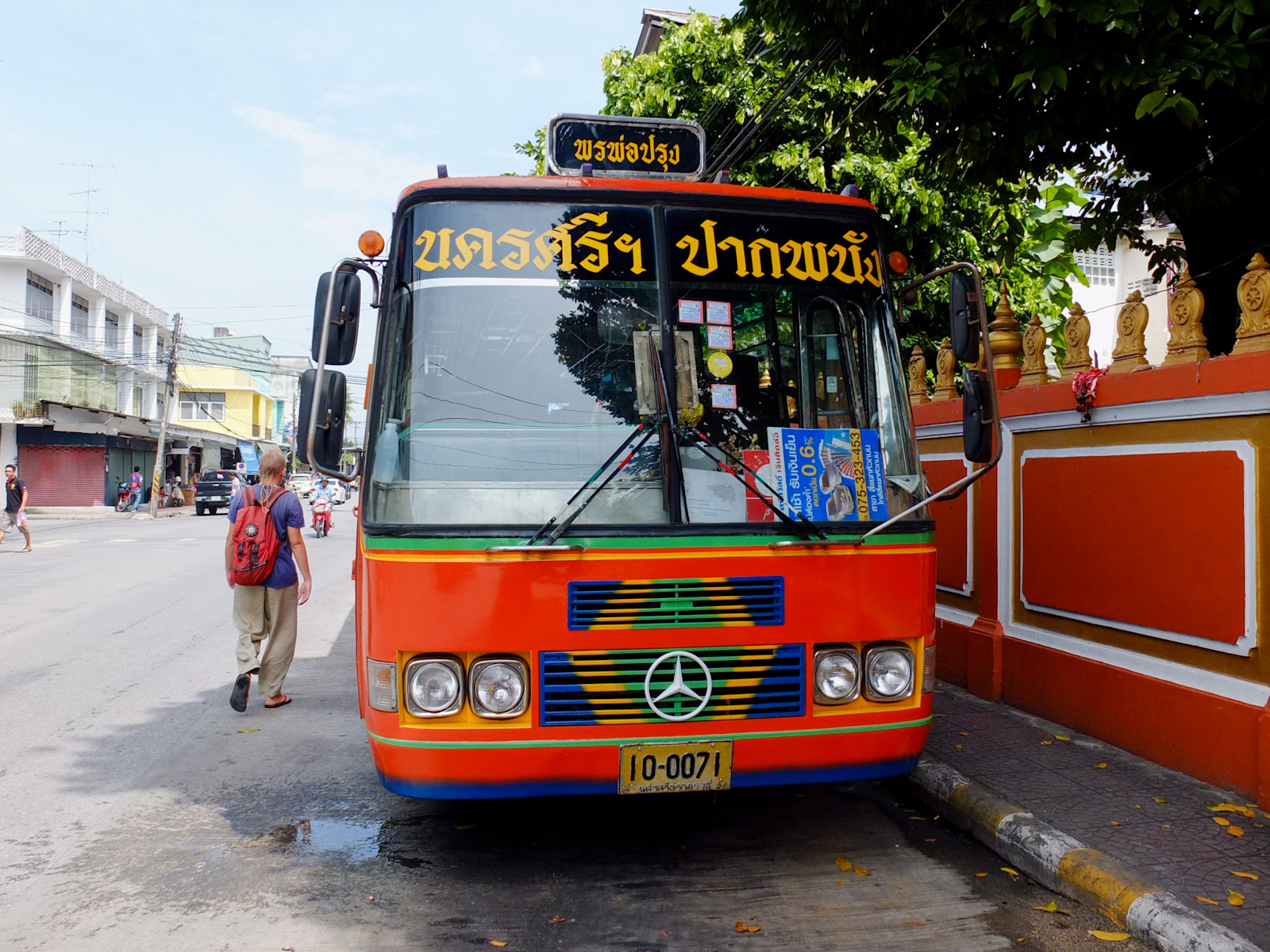
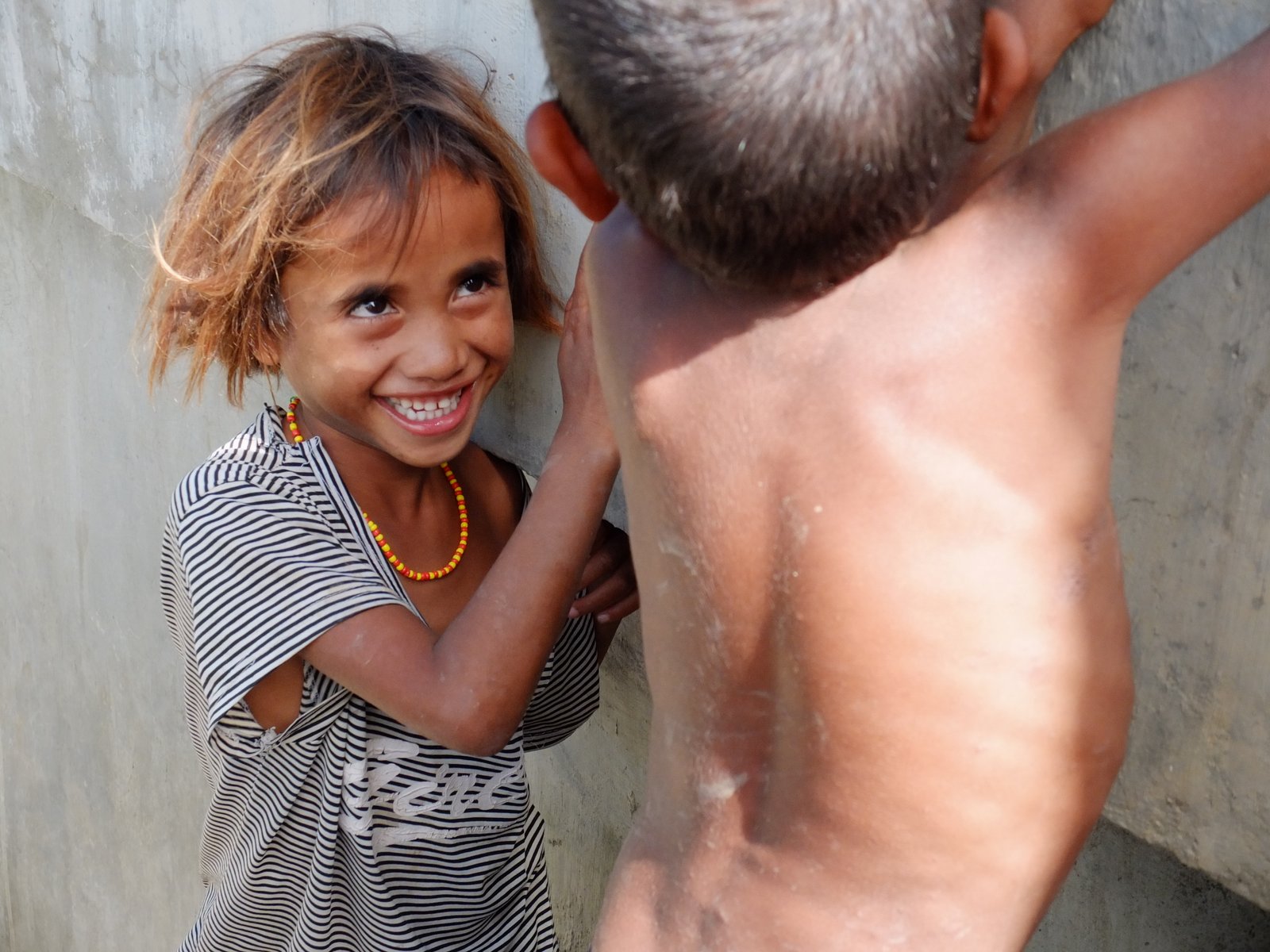
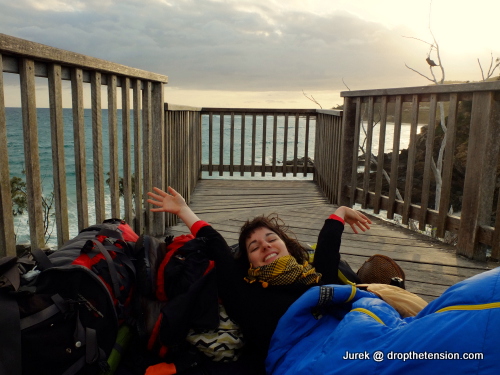
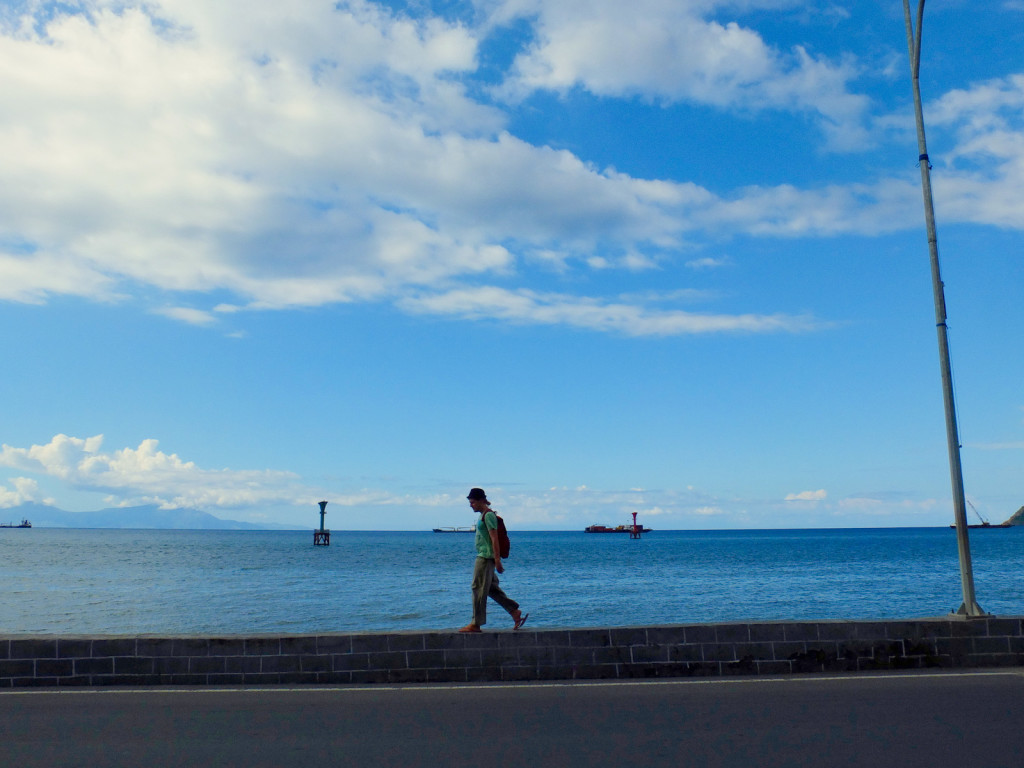
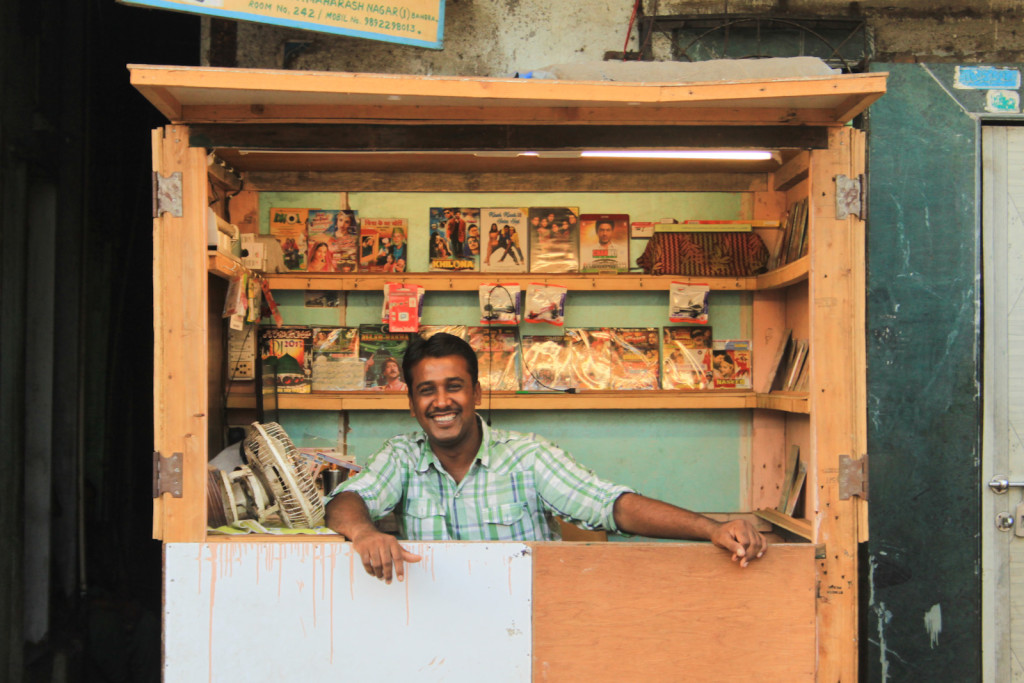
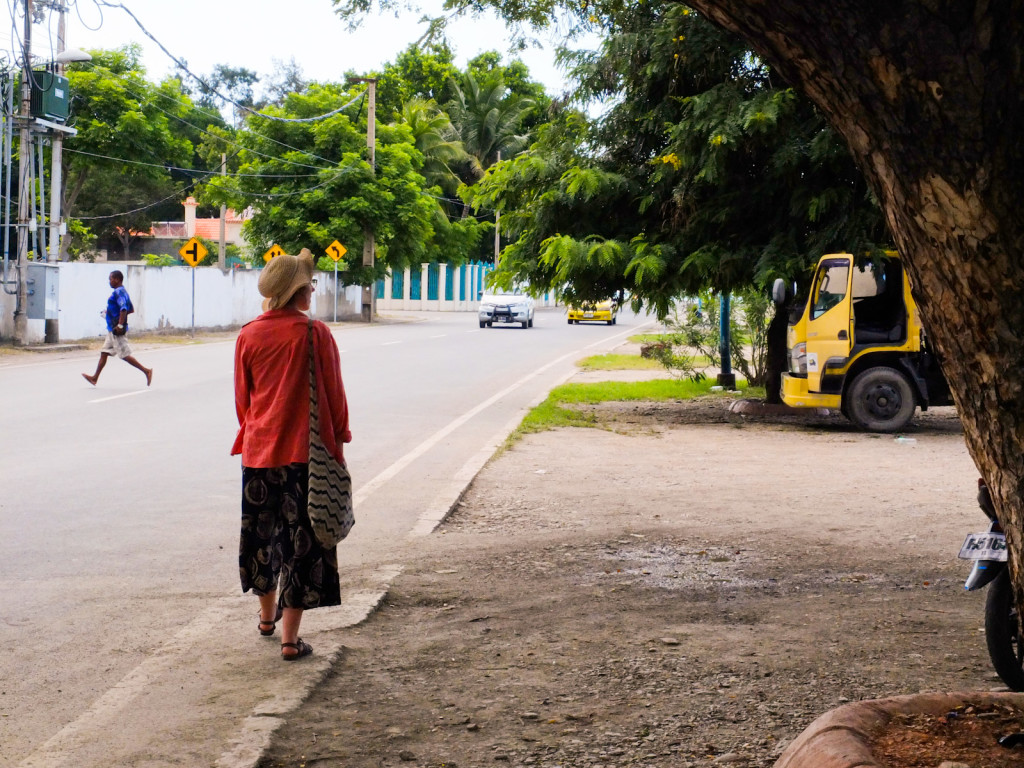
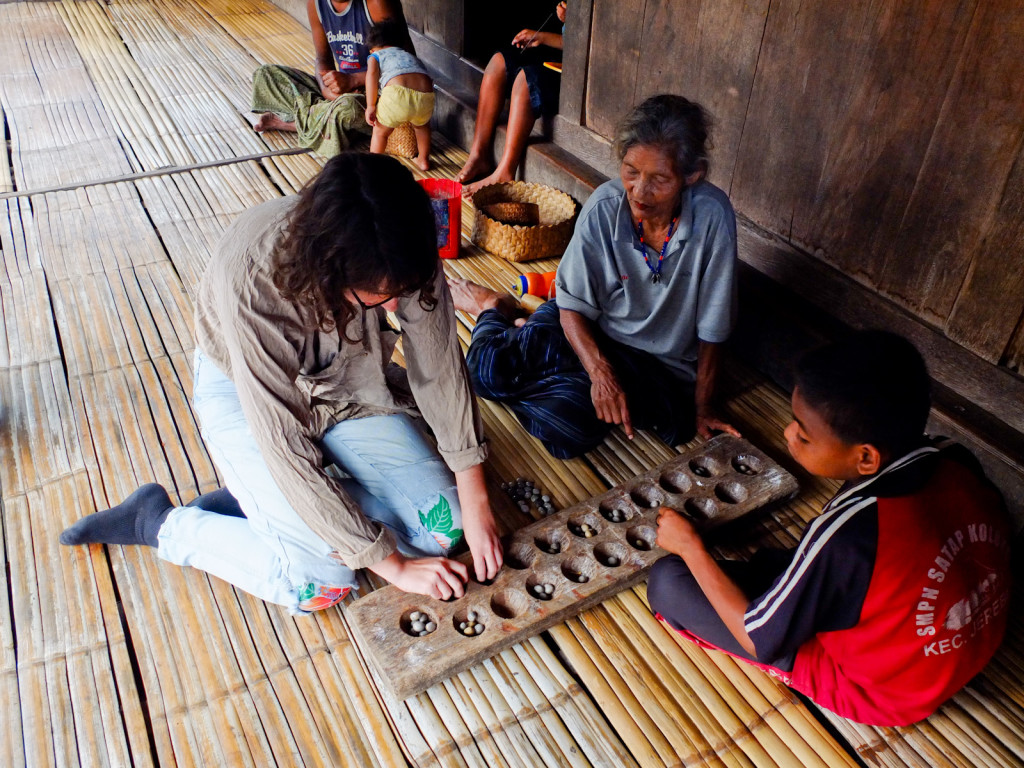
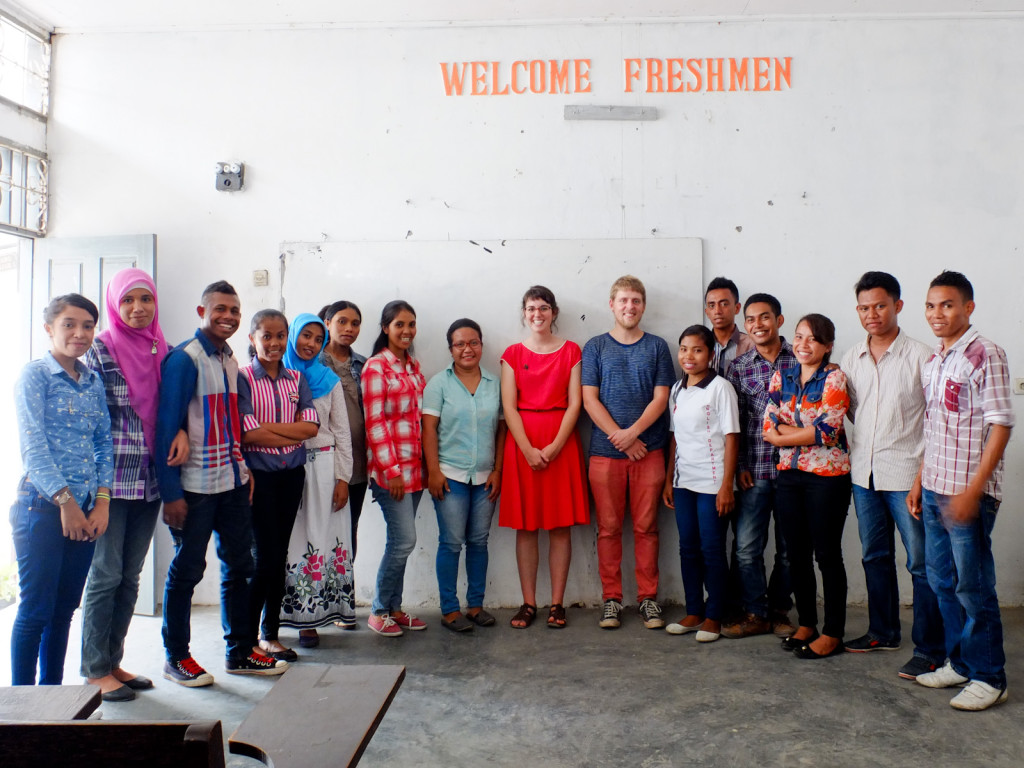
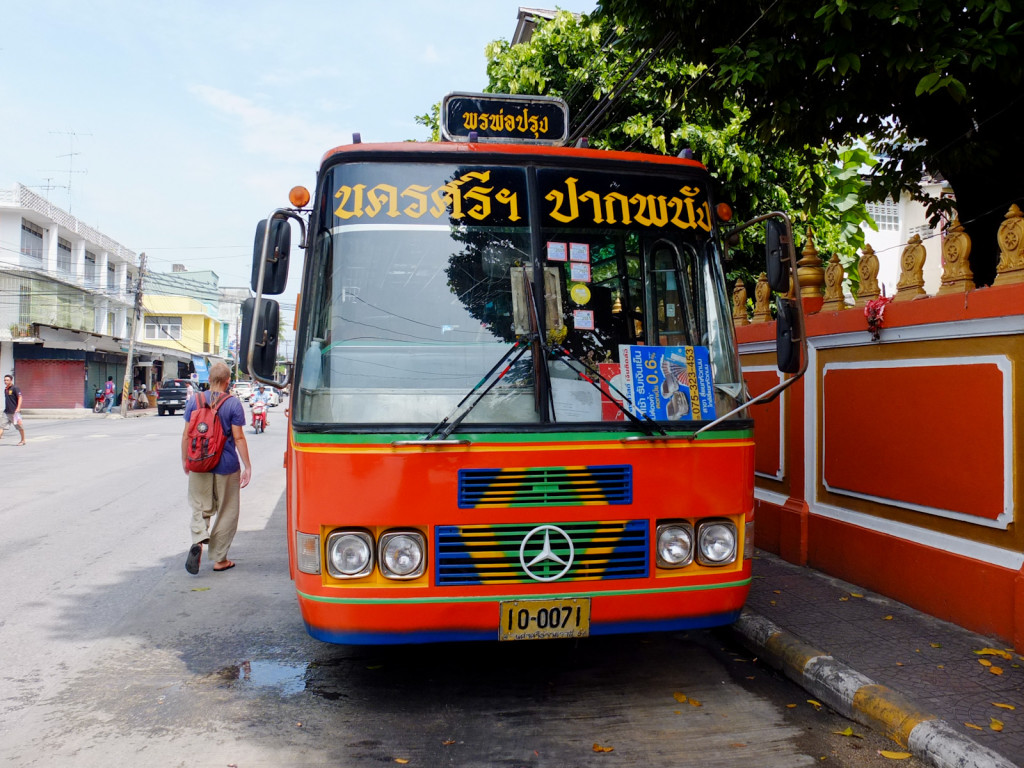
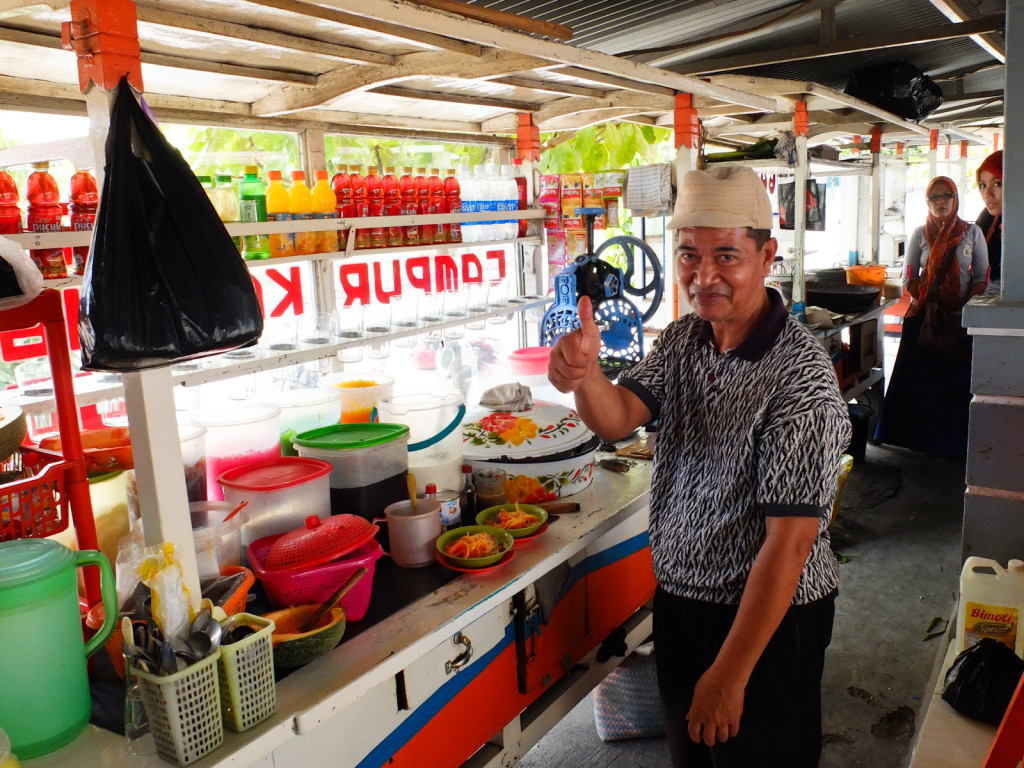
Great article Wendy and very well written 🙂
Big THANKS for reading, H 🙂 Hope Sri Lanka was amazing and that it’s not too hard returning home 😉
Pingback: 4 STEPS TO A CONSCIOUS TRAVEL • Drop the tension!